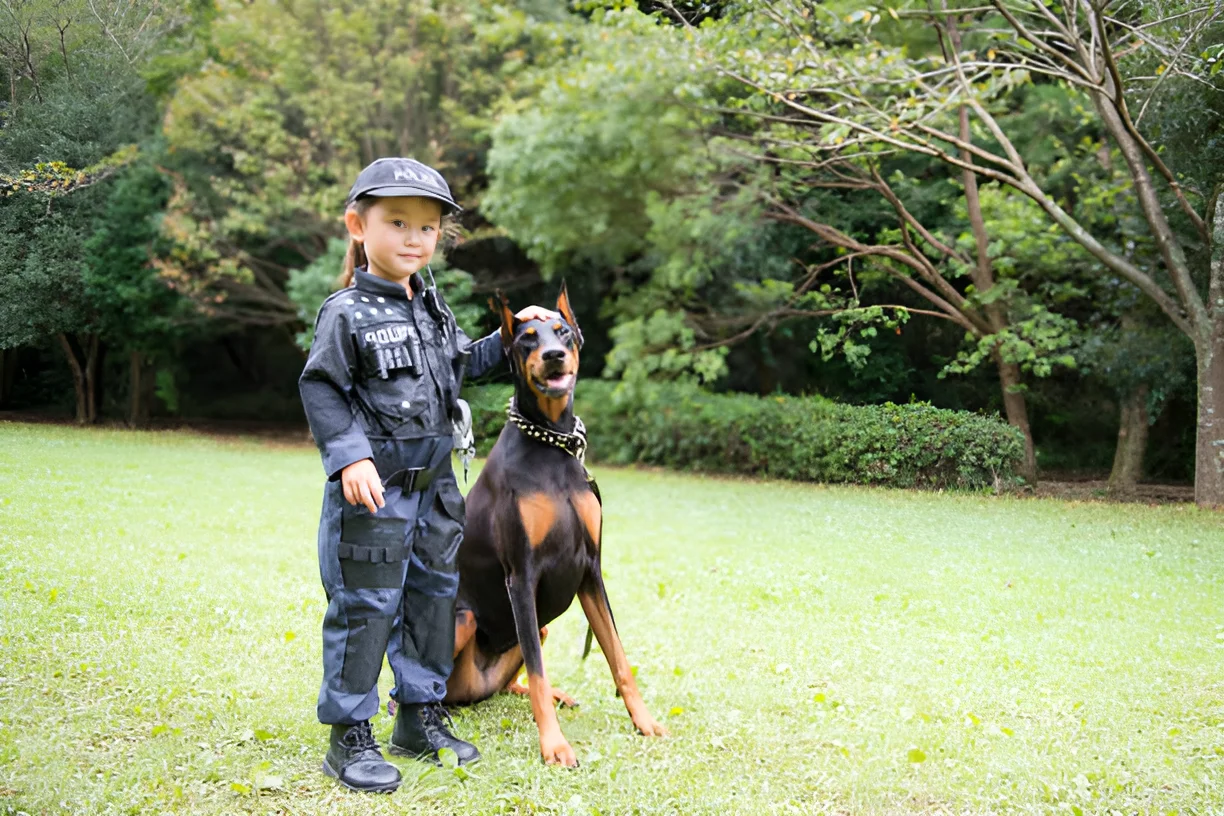Yes, police still use Dobermans, but their prevalence has decreased in favor of other breeds like German Shepherds and Belgian Malinois. Dobermans have a storied history in police and military work, known for their intelligence, loyalty, and imposing presence. However, their use in these roles has seen a decline over the years. This comprehensive guide explores the reasons behind this shift, the characteristics of Dobermans that make them suitable for police work, and the current status of their use in law enforcement.
The History of Dobermans in Police Work
Origins and Early Use
The Doberman Pinscher was developed in the late 19th century by Karl Friedrich Louis Dobermann, a German tax collector who needed a loyal and protective dog for his work. The breed quickly gained a reputation for its courage, intelligence, and loyalty, making it an ideal candidate for police and military roles.
World Wars and Beyond
Dobermans were extensively used during both World Wars for various tasks, including guarding, tracking, and message delivery. Their bravery and effectiveness in these roles solidified their place in law enforcement and military history.
Characteristics of Dobermans
Physical Traits
Dobermans are medium to large-sized dogs, typically standing between 24 to 28 inches tall and weighing between 60 to 100 pounds. They have a sleek, muscular build and a short coat that comes in various colors, including black, blue, red, and fawn.
Temperament and Behavior
Dobermans are known for their intelligence, loyalty, and protective nature. They are highly trainable and excel in obedience training. Their alertness and strong protective instincts make them excellent guard dogs. However, they also require consistent training and socialization to ensure they are well-behaved and balanced.
Why the Decline in Use?
Cost and Training
One of the primary reasons for the decline in the use of Dobermans in police work is the cost and time required for their training. Dobermans are more expensive to acquire and train compared to other breeds like German Shepherds and Belgian Malinois. Additionally, they require more time to mature and become fully operational.
Health Issues
Dobermans are prone to certain genetic health issues, such as hip dysplasia, dilated cardiomyopathy, and von Willebrand’s disease. These health concerns can affect their reliability and longevity in demanding roles like police work.
Temperament and Adaptability
While Dobermans are loyal and protective, they tend to bond closely with one handler, making them less adaptable to multiple handlers. This can be a disadvantage in police work, where dogs may need to work with different officers. Breeds like German Shepherds and Belgian Malinois are more adaptable and can work effectively with multiple handlers.
Current Use of Dobermans in Police Work
Specialized Roles
Although their use has declined, Dobermans are still employed in specialized roles within law enforcement. They are often used for personal protection, search and rescue, and detection work. Their intelligence and trainability make them suitable for these tasks, provided they receive proper training and care.
Comparison with Other Breeds
German Shepherds and Belgian Malinois have become the preferred breeds for police work due to their versatility, adaptability, and fewer health issues. These breeds are also more readily available and have a longer history of successful deployment in various law enforcement roles.
Training and Socialization
Importance of Early Training
Early training is crucial for Dobermans to develop into well-behaved and effective working dogs. Consistent and positive reinforcement techniques are essential to harness their intelligence and trainability. Obedience training, socialization, and exposure to various environments are key components of their training regimen.
Socialization
Proper socialization helps Dobermans become well-adjusted and confident dogs. Exposing them to different people, animals, and environments from a young age can prevent fearfulness and aggression. Socialization also ensures they can handle the stress and demands of police work.
Health and Care
Regular Veterinary Check-ups
Regular veterinary check-ups are essential to monitor and manage the health of Dobermans. Early detection and treatment of health issues can prolong their working life and ensure they remain fit for duty.
Exercise and Mental Stimulation
Dobermans are active and energetic dogs that require regular exercise and mental stimulation. Daily walks, playtime, and training sessions are necessary to keep them physically and mentally fit. Engaging them in activities like agility, obedience, and scent work can provide the necessary stimulation.
Conclusion
While Dobermans are not as commonly used in police work as they once were, they still possess the qualities that make them suitable for specialized roles. Their intelligence, loyalty, and protective nature make them valuable assets in law enforcement when properly trained and cared for. Understanding the reasons behind their decline in use and the characteristics that make them unique can help appreciate the continued relevance of Dobermans in police work.
The photo featured below the post headline is Credit: Hakase_/istockphoto
I hope you find this post helpful and informative. If Yes’ feel free to share it with your friends!
Frequently Asked Questions
Do police still use Dobermans?
Yes, police still use Dobermans, but their prevalence has decreased in favor of other breeds like German Shepherds and Belgian Malinois.
Why are Dobermans less commonly used in police work?
Dobermans are less commonly used due to their higher cost, longer training time, health issues, and tendency to bond closely with one handler.
What roles do Dobermans perform in law enforcement?
Dobermans are often used in specialized roles such as personal protection, search and rescue, and detection work.
How do Dobermans compare to German Shepherds and Belgian Malinois in police work?
German Shepherds and Belgian Malinois are preferred for their versatility, adaptability, and fewer health issues, making them more suitable for various law enforcement roles.
What training is required for Dobermans in police work?
Dobermans require early and consistent training, including obedience training, socialization, and exposure to different environments to become effective working dogs.

